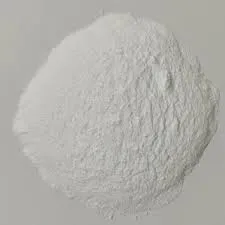The Importance of APIs in Pharmaceutical Manufacturing
Active Pharmaceutical Ingredients (APIs) form the cornerstone of the pharmaceutical industry. These substances are responsible for the pharmacological effect of the drug, making their quality and production processes vital for the efficacy and safety of medications. This article elaborates on the significance of APIs, the production processes involved, regulatory considerations, and the challenges faced by manufacturers.
Understanding APIs
APIs are the active components that bring about the desired therapeutic effects in patients. They can be derived from natural sources, such as plants and animals, or synthesized chemically. The process of converting raw materials into APIs involves various complex methodologies, including synthesis, extraction, fermentation, and purification. The resulting API is then formulated into a final pharmaceutical product, often combining it with excipients to improve stability, bioavailability, and patient compliance.
Production Process of APIs
The production of APIs comprises several stages, each demanding specific technologies and stringent controls to ensure quality and compliance. The initial step is raw material selection, where the purity and source of ingredients play a crucial role. Following this, the synthesis or extraction process begins, which may involve chemical reactions, fermentation methods, or extraction from natural sources.
After production, APIs go through rigorous purification processes such as crystallization, chromatography, and filtration to eliminate impurities. The final step is quality control, where each batch of API undergoes testing for potency, purity, and stability according to pharmacopoeial standards. This quality assurance is vital, as any deviation can lead to ineffective or harmful medications.
Regulatory Framework for APIs
The production and distribution of APIs are heavily regulated to ensure public safety and efficacy of medications. Regulatory bodies such as the U.S. Food and Drug Administration (FDA), European Medicines Agency (EMA), and others require manufacturers to comply with Good Manufacturing Practices (GMP). These guidelines mandate rigorous documentation, process validation, and quality testing throughout the manufacturing process.
The regulatory landscape for APIs also includes rigorous assessments during drug approval processes. Manufacturers must submit detailed data on the API's chemistry, manufacturing, and controls (CMC), demonstrating that the substance is consistently produced with quality and does not pose any risks to patients.
pharmaceutical api list

Challenges in API Manufacturing
Despite its critical role in drug formulation, the API manufacturing industry faces numerous challenges. One significant issue is the rising cost of raw materials, which can have a direct impact on the overall cost of drug development and production. Innovative sourcing strategies and the development of alternative materials are ongoing efforts to mitigate this challenge.
Another major hurdle is the evolving regulatory landscape. Manufacturers often struggle to keep up with the increasing stringency of regulations, which can result in increased costs and delays in production. This situation emphasizes the necessity of maintaining robust quality assurance protocols and investing in compliance training for staff.
Additionally, the globalization of the supply chain introduces complexities in quality control and regulatory compliance. The reliance on international suppliers for raw materials can lead to variability in quality, and ensuring that these suppliers meet the required standards is a critical concern for manufacturers.
The Future of API Development
The future of API manufacturing is poised for transformative changes driven by advancements in technology and scientific research. Continuous manufacturing processes, for instance, promise greater efficiency and reduced production times while maintaining high standards of quality. Moreover, the integration of artificial intelligence and machine learning is enabling more robust quality control measures and optimizations in production workflows.
Furthermore, with the growing trend of personalized medicine, there is a shift towards the development of APIs tailored to individual patient needs. This customization could enhance the efficacy of treatments and minimize side effects, marking a significant advancement in the pharmaceutical field.
Conclusion
APIs are indispensable to pharmaceutical development, and their importance cannot be overstated. With ongoing challenges in the industry, from regulatory compliance to cost management, manufacturers must remain agile and innovative. Ensuring quality in API production is not only a regulatory requirement but also a moral obligation towards patient safety and therapeutic efficacy. The future will likely see more innovations and strategies that can address these challenges, ultimately leading to better healthcare outcomes.

